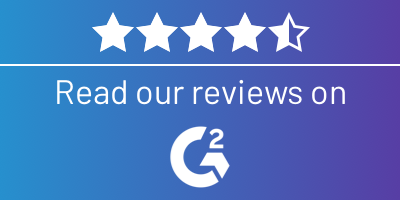This article was originally published via Lawyer's Daily
By Gary Kalaci
As we close in on the six-month mark of the COVID-19 pandemic, many legal teams are getting more accustomed to a new way to work. The shift to remote working arrangements has impacted how we interact with our co-workers, but the lack of in-person interactions has undoubtedly been even more challenging when it comes to business development and networking opportunities. These are challenges that can be overcome with the right strategies and tactics.
From the outset, our team has worked to adapt and evolve our traditional approaches to business development, incorporating a new set of best practices to build and maintain client relationships. At a recent webinar, “Business Development for Lawyers in the Age of COVID,” our expert panel explored a few of their top tips for driving business development during these trying times.
Be deliberate and authentic
Introducing yourself or connecting with a contact virtually can present a challenge to appear genuine, when comparing to a more natural, in-person meeting. It’s important to put time and effort into the preparation before contacting a potential client. This means taking the time to research the organization and person you’re contacting. Knowing the names of the people on their team and what they do can make a big difference and show that you go the extra mile. You should also put effort into thinking about why you’re calling this person in the first place. Have a purpose in mind, even if the call is just out of personal interest. This is crucial to ensure you won’t waste someone’s time.
Clients and partners will also appreciate if you reach out to them with authenticity and your shared experiences. Be genuine and ask how things are going, rather than going straight into the pitch. Don’t send mass e-mails or generic LinkedIn messages — personalize the message you’re trying to convey and relate to your audience. The old saying “treat others as you want to be treated” is still relevant and should be taken into consideration when cold-calling or e-mailing someone new.
Maintain professionalism
Working from home has justifiably shifted priorities around dress codes. Maybe you’ve relaxed your wardrobe, but you should never forget your manners. Although lawyers and clients have become more understanding and lenient towards being dressed in casual clothing and hearing background noise over a Zoom call, that should not take away from your ability to maintain your professionalism and business etiquette. Finding a quiet space in your home and putting effort into minimizing distractions and background noise shows that you are taking the call seriously. Making a lasting and positive first impression applies to all initial interactions, even over a video call.
Add value to your relationships
One of the most successful remote business development strategies entails resisting the urge to exploit your contacts at the start of a crisis. We have found that remaining mindful and compassionate can go a long way. This can be an authentic check-in to see how someone is doing, without discussing projects specifically or circulating free and helpful resources, such as articles and blogs. If you genuinely try to help your contacts when times are hard, you’ll be top of mind when they’re seeking the services that you offer. Check in with your network frequently and ask how you can help — then go above and beyond and exceed their expectations.
Don’t wait until the pandemic is over
The pandemic doesn’t mean you shouldn’t be networking. In fact, it’s important to network now more than ever. Many of your clients are likely facing new challenges as a result of COVID-19, so put yourself in your clients’ shoes and think about what they might need. This can help spark a conversation about how you could work together to overcome the challenges affecting their business.
Now is also a great time to get creative. If you have an idea of how you can optimize your business development opportunities, test and iterate. If you don’t do it, someone else will. In any crisis there is opportunity for you to succeed — think about what kind of opportunities might exist in your current situation. Use any extra time that you may have now to tackle the tasks you’ve been postponing.
These are just a few of the methods you can employ to provide better service, act more efficiently, engage in a more client-focused way and add value in new ways. We don’t know what the future holds, but acting quickly and being adaptable will surely help us overcome new and unexpected challenges.














